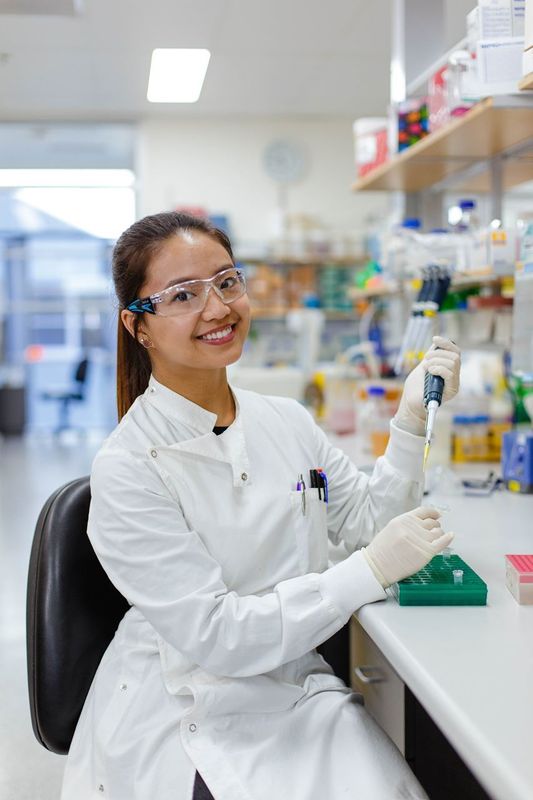Flicking the switch on inflammation
 Deadly infections could be a thing of the past if a young Queensland woman’s research proves successful.
Deadly infections could be a thing of the past if a young Queensland woman’s research proves successful.
Amy Chan, a PhD student from the University of Queensland Institute for Molecular Bioscience, is in the final stages of a groundbreaking study focused on the inflammasome protein complexes that regulate inflammation in the human body.
Inflammation is an important protective response that defends our bodies from infection. The non-canonical inflammasome is a complex that regulates inflammation in the human body. During an infection, the non-canonical inflammasome activates and assists in immune responses to infection. Under-activation of this complex increases infection susceptibility, but over-activation has been shown to cause septic shock.
Amy’s work is dedicated to determining how the non-canonical inflammasome is naturally switched on and off in the human body. By understanding its natural mechanisms, she hopes future scientists may develop drugs to manipulate and artificially activate or deactivate Caspase-4.
“If we can artificially activate or deactivate the inflammasome, we may be able to amplify the immune response at the onset of infection to kill bacteria faster and also decrease damaging immune activity during septic shock,” said Ms. Chan.
It is estimated that more than 30 million people worldwide have suffered from sepsis, resulting in approximately six million deaths annually. If successful, Amy’s research could effectively reveal the mechanisms that govern inflammasome activation and deactivation. Assisting in the immune response to infection, millions of lives could be saved globally.
Amy’s research also further advances avenues from a pharmaceutical standpoint, as well as cardiology research, as non-canonical inflammasome activity may be linked to chronic heart disease.
“What women in STEM-related fields need are female mentors. Someone they can confide in and look up to,” she said.
“WiT is an inclusive network of professional women. I encourage all young women thinking of entering STEM to join an organisation where they can network and receive support from other women, it makes a tremendous difference in your professional and personal development.”
Alongside her research, Amy is a passionate advocate for STEM and is heavily involved in community outreach through her role as a science ambassador and as an active undergraduate tutor at the University of Queensland.
“I believe that science is fundamental to societal advancement. I strive to get as many people excited about science as I can,” she said. “My personal goal is to help students develop evidence-based thinking, and to teach science in a fun, engaging, and interactive manner. I want students to learn how to think, rather than what to think.
“I also aim to encourage schools to adopt a student-centred teaching approach, and support both students and teachers through this transition.”
Amy won the Life Sciences Young Achiever award at the 22nd annual Women in Technology (WiT) Awards, in 2019.
Read Amy’s interview in F-Magazine.
@September 2019







